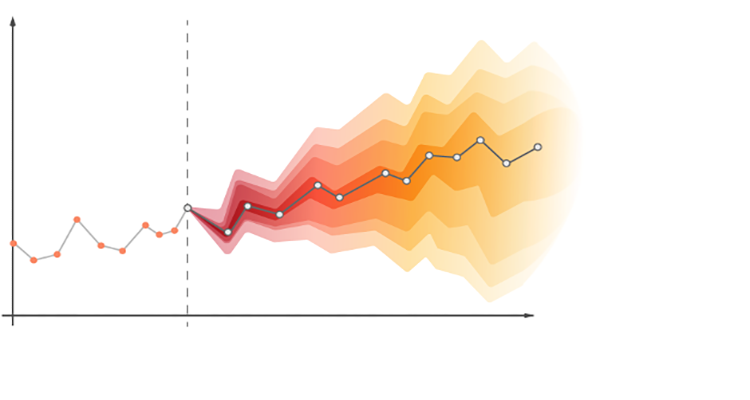
Thesis subject
Probabilistic forecasting of time-series energy data (MSc)
The EU aims to accelerate the take-up of renewable energy to reach the goal of reducing net greenhouse gas emissions by at least 55% by 2030. However, the integration of renewable energy (e.g., solar PV and wind) in the electricity grid poses serious operation challenges due to the intermittency, non-dispatchability and unpredictability of renewable energy. If not handled carefully, such challenges can have serious negative technical, economic and societal impact. Emerging tools such as data science and Artificial Intelligence (AI) can help in better understanding the big time-series data generated by renewable energy sources, electricity markets, or energy demand, and offer methods for data-driven optimization and decision making.
Short description
Accurate energy forecasting can help optimize the decision-making process in the energy system ahead of time, for instance, to lower the operating capacity of energy reserves, to make accurate bids in electricity markets or to maintain grid stability. This can potentially decrease the integration costs associated with high penetration rates of renewable energy. A distinction can be made between two kinds of forecasting approaches, namely point (or single-value) and probabilistic forecasts. In point prediction approaches, one value is predicted for each time in the horizon. Probabilistic forecasting approaches, on the other hand, enhance the reliability of predictions by maintaining information about their full probability distributions, so that the predictions are more informative. This is especially important when considering risk resulting from decisions that are based on predictions (e.g., bidding in electricity markets). This thesis will focus on probabilistic forecasting approaches of time-series energy data.
Objectives
- Review articles and white papers on time-series energy data forecasting (focusing for instance on electricity prices or solar photovoltaics power generation).
- Distinguish between deterministic and probabilistic forecasting.
- Build a data-driven probabilistic forecasting model, supported by AI.
Tasks
The work in this MSc thesis entails:
- To collect full-text articles from primary studies and literature reviews on time-series energy data forecasting (for a specific application: electricity prices or solar photovoltaics power generation).
- To assess the challenges and data-driven solutions available in literature for probabilistic forecasting of time-series energy data.
- To build a data-driven AI-based model for probabilistic forecasting of time-series energy data.
- To evaluate the effectiveness of the model in the Dutch electricity market using actual data.
Note: Time-series energy data will be made available for this thesis.
Literature:
- Van der Meer, Dennis W., Joakim Widén, and Joakim Munkhammar. "Review on probabilistic forecasting of photovoltaic power production and electricity consumption." Renewable and Sustainable Energy Reviews 81 (2018): 1484-1512.
- Nowotarski, Jakub, and Rafał Weron. "Recent advances in electricity price forecasting: A review of probabilistic forecasting." Renewable and Sustainable Energy Reviews 81 (2018): 1548-1568.
Requirements:
- Courses: Programming in Python (INF-22306), Statistics (MAT), Big Data (INF-33806) or Machine Learning (FTE-35306)
- Required skills/knowledge: basic data analytics/statistics/ machine learning and willingness to learn new data-driven tools, interest about electricity markets and sustainable energy transition
Key words: Data Analytics, Machine Learning, Statistics, Sustainable Energy Transition, Electricity Markets, Solar Photovoltaics
Contact person(s)
Tarek Alskaif (tarek.alskaif@wur.nl)